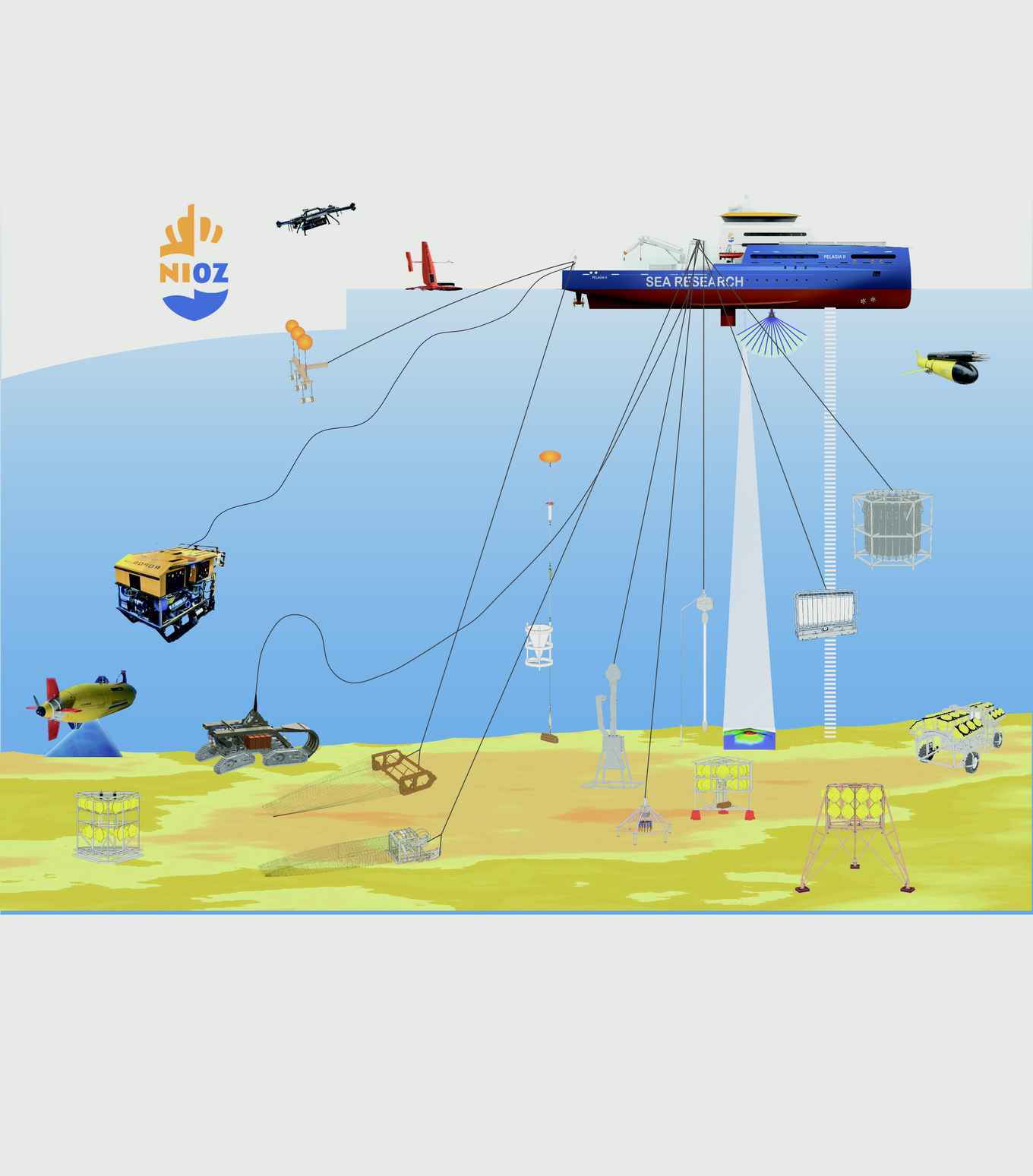Large scale scientific infrastructure grant for national marine research
1 May 2020

This highly competitive award is a crucial contribution to the total package of the national research fleet replacement,' says Prof Henk Brinkhuis, director of the Royal Netherlands Institute for Sea Research (NIOZ) and figurehead of the consortium. Project leader Prof. Gert Jan Reichart from NIOZ adds: 'Thanks to this investment, the Netherlands will continue to have access to the most modern research equipment, leading in its field of application, and meeting the needs of the marine knowledge sector. This will keep the Netherlands in step with investments in other EU countries.'
Living Lab
The now acquired funding will provide crucial equipment, augmenting the role and capabilities of the to-be-renewed research fleet. The new fleet design includes modular laboratories for seawater chemistry, (micro)biology and physics and state-of-the-art biofuel and corresponding propulsion units. But the fleet will also provide a 'living lab' for many scientific areas, including the needs of the maritime industry for innovations in the field of emission-neutral sailing.
‘Our oceans contain a fascinating biodiversity and a rich variety of resources, but are also threatened by over-exploitation, pollution, and climate change. This grant will provide state-of-the-art equipment to investigate current and future changes of our oceans’ explains Prof. Jef Huisman from the UvA Institute for Biodiversity and Ecosystem Dynamics (IBED). It will include, amongst others, a network of (semi) autonomous moorings, landers and gliders that can be launched from the research vessel, and will collect oceanographic data that can be communicated real-time to the ship and to shore-based data centres and class rooms.
NWO characterizes the awarded grant as follows: ‘Our seas and oceans are essential for our climate and life on Earth in general. Yet, knowledge about them is still limited. The Netherlands has a long and rich history of excellent marine research that relies on the availability of research vessels and specialized equipment. The present 28-year-old research vessel is due to be replaced. This Roadmap application concerns innovative scientific equipment to be included on the new research vessel. The main large research facility for which funding is requested concerns autonomous, and remotely controlled equipment for making observations in depth, time and spatially that will help answer fundamental and technological research questions’.